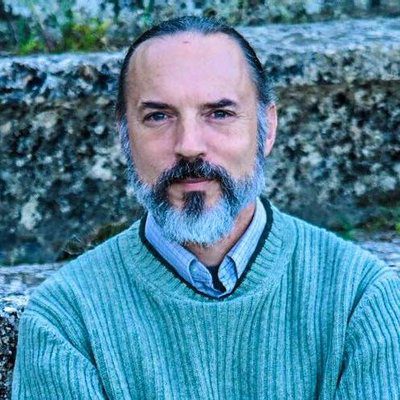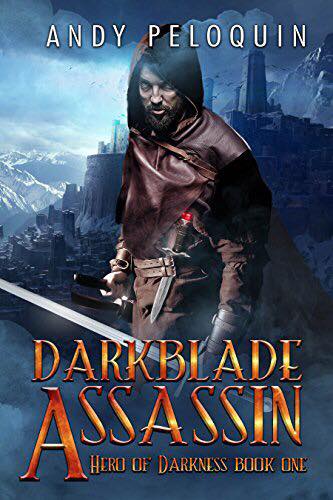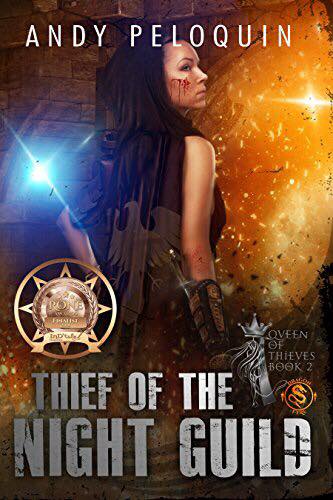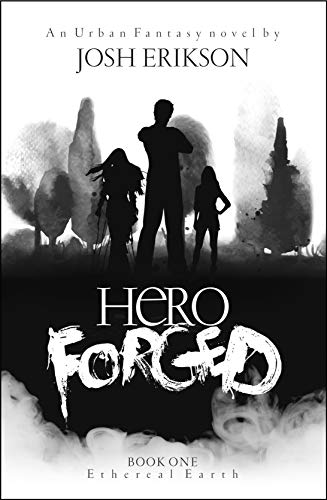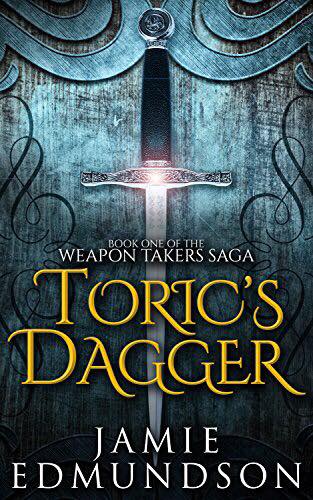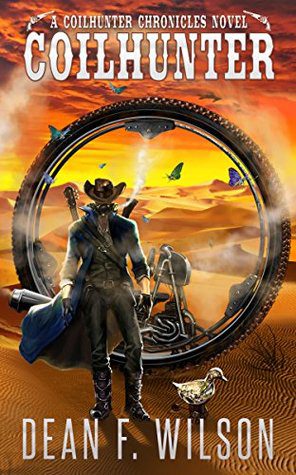Thoughts on world building
By Ulff Lehmann
There’s a kingdom, it should be based on renaissance Florence, next to it are the Gauls pre-Roman conquest, next to that the elves who are pretty much like elves everywhere, next to the elves the orcs.
Etc. etc.
Sounds familiar? If you’ve spent any amount with D&D and related games and its fiction, you will know what that means.
Oh, here’s a desert and in that desert a city.
I made the mistake myself. Well, some of the mistakes. It’s hard not to when you have been reading books set in and game mastering D&D in the Forgotten Realms for years. It’s also wrong. It’s a different level of wrong that, say, having to “level up” a character before his or her story actually begins, thus creating a lot of useless skirmishes for said character before they go on THE QUEST. Or some such.
The orcs were created by the same pantheon of gods as the elves, and the Florentine kingdom worships a trinity of deities that work together, and the Gauls have an entirely different pantheon of course based on the ancient gods.
And all the gods are real!
All too familiar, right?
Now, we’re dealing with a mythical world. A world in which the gods supposedly created everything, which in turn means we are dealing with what I call creation fact. It can’t be a myth because then we’d just get the same stuff as Earth, with many competing mythologies and none of them real. (Yes, none of them are real, get over it.) Since we have already established that all the gods are real, we actually have competing literal gods that have their own creation fact… and that’s where shit usually hits the fan.
If the world was created by deities, or peopled by deities, how come they’re now responsible for other groups of people, even within the same species? It may seem trivial, in the light of the big ass epic story you want to tell, but the instant you have priests of opposite sides calling upon their respective deity and either side gains a boon that definitely proves both gods are real, you will have people asking wtf is going on. And rightfully so.
If both groups are real, then both creation facts are also real, and if one god or group of gods created the world by slaying the big sky turtle, while the other god or gods built the world with stones and mortar, things are getting interesting. As long as no side can actually prove their faith is right, something that goes out the window as soon as boons are granted by both sides thus making both right, the world cannot be built from the carcass of the sky turtle and by stones and mortar. It makes no sense, and I would like to think that readers will pick up on such discrepancies.
But is all of this important? Some might ask.
Yes, it is, because everything comes from somewhere, especially in fantasy. Magic can just be there and the “gods” are just the strongest users. That can work, but if you pull on that thread, as a creative mind is wont to do, you’ll again end up wondering who created the world and how.
The Forgotten Realms solved this problem by creating an Overgod who was sort of like the creator who then attracted a patchwork of other gods and peoples to his world. Sort of like a toy box into which you tossed everything because it is cool. The instant you have utterly different cultures living side by side with none of them gaining the upper hand things are really messed up.
Yes, you might say, that’s how history works, but in your world things are different. Then you introduce some harebrained scheme to have it all make sense, because things are so much cooler if you have Florentine and Gaul people living right next to each other. It’s not like these cultures weren’t neighbors before, right? I mean Italy and France are right next to one another, so why not have these cultures together as well? And add some Native American tribes into the mix as well, while we’re at it! Why not have renaissance blunderbusses go against Celtic battle chariots? Why not have the Native American tribes join with the Gauls to attack the Florentine?
I can see the madness unfolding. Can you?
Nothing happens in a vacuum. Nothing happens without a reason. The Gauls and Florence were separated by a millennium and then some years of technical advances, regresses, renewed sciences, and such little things as reading and writing, not to mention gunpowder and whatnot. Look at what happened in areas where a technologically advanced civilization meets on that’s technologically inferior. History books are full with those stories. Realistically speaking, a Florence based civilization would have conquered the Gauls with ease. The proud barbarians would have looked so much worse against artillery and cavalry than they did against the Romans.
So, let’s ditch the multiple pantheons and whatnot. It’s one of the things I always appreciated about Dragonlance, they had only one pantheon. Sure, it didn’t create the world, but that’s another story.
Diversity of peoples. In the real world. We have a variety of melanin levels, making humans all kinds of different shades. We also have different hair colors and structures, and different features. A result of hundreds of thousands of years of evolution, parallel evolution, interbreeding, and so forth. Also hundreds of different religions which are, of course, all real to the believers.
Since we already decided to ditch the multiple pantheon approach (because it causes too much hassle, when we want to focus on story) we also ditch different skin colors. Now, this does not mean our world will be populated by whites, it can also be populated by purples, or blacks, or pinks, or or or.
If we look at real world mythology, we always have every actor in whatever tale be of the same people. Greeks in Athens and Sparta, as well as in Troy and across the Bosporus, again, it only makes sense. The moment you have non-Greeks showing up in tales filled with Zeus’s bastards, who worship an entirely different set of gods and have never heard of Mount Olympus, your carefully maintained suspension of disbelief will crumble. So the folks in Troy spoke Greek, so did Circe and everyone else… they all worshiped the same gods as well. Because it fit the narrative, and made things far less of a hassle.
We have bigger, more tasty fish to fry.
Myths everywhere deal with similar people. Etzel of the Nibelungenlied also spoke German, even though the character was based on Attila the Hun. Because it fit the narrative of dragon slaying heroes and intrigue.
I want them to all speak different languages! I need to develop grammar, syntax, vocabulary!
Tolkien much? Do you write in whatever language the people are talking? Did Tolkien have that much dialogue in Sindarin? How about the Dark Tongue of Mordor? The drawings were a nice gimmick, sure, but each phrase was also translated into English, because the story was written in English. Again, since the good old professor was British, he wrote in his native tongue. He wanted people to read the damn thing, and no publisher would have printed a manuscript written in various different, MADE UP languages!
Does knowing a language help you with the story? Of course not. You could write a tale set in Prussia or Spain or Italy without knowing more than a few words of either language, and even then you’d probably not pronounce any of them like a native of whatever time. And that’s good the way it is. You don’t need to know the language to write a story set in a country. There’s brilliant stories written by Americans that take place in Nazi Germany… the few German words that crop up are mostly used in the wrong way anyway, so why bother? Yes, you have created your own language, but you will never use it for a dialogue. Why? Because you want people to bloody read the book or story and you want them to continue reading it!
But names… Names are not language.
What you must know, and understand by heart is context and consequence. There’s a reason why bodkin arrows were used against chain armor, and scimitars were not. How did people live in the period that you modeled your world on? That’s stuff you need, because otherwise you will get reviewers pointing out that kukris against chainmail are utterly point and useless, or that leather armor just wasn’t, at least not the fetish-like stuff people wear in so many “period” dramas.
Stuff like that is as important as understanding history. Real world history, because our fantasy stories are based on some history or other, and it really doesn’t matter if it’s Ancient Egypt, Feudal Japan, pre-Christianization Celtic Ireland. It does not matter which culture, just know and understand it, and why they had specific technologies. The hodgepodge approach of throwing every conceivable weapon and armor and fashion into a blender and having something that makes sense is good for games, not so much for coherent worlds.
Research, understanding of context, cohesion, these are the keys.
I prefer mythical realism, but I do understand it’s not everyone’s cup of tea. There are those who want a world without such confines. No gods, no reason for stuff being there, the irony about that is, you still have to adhere to certain rules. It matters little if you’ve made up the rules, or if you basically adjust real world physics. Let rivers flow uphill or up-mountains, for all I care, as long as it makes sense, internally, it matters not.
Look at Pratchett’s discworld. It makes sense, internally, and it is more mythical that, say, Krynn or the Forgotten Realms. Sure, a disc carried on the backs of four enormous elephants that in turn stand on the back of a massive turtle which in turn swims through the cosmos is about as absurd as it gets, but it’s founded in real world mythology. You can go the route of magical realism, have magic just be a part of everyday life. In the end it has to make sense.
For instance, if you have magic in the world, and it is readily available, what use is there for technology to advance? We don’t have magic in our world, we don’t have gods in our world whose priests heal our illnesses (despite the faux faith healers and shit), so we needed to figure out how to perfect fire making, or the creation of tools and weapons. If you have mages who can create fire by merely looking at a bit of wood, why bother with firestones and such? If said mages can kill over a distance, and you have enough mages available, why develop weapons?
Any such technology requires a need. Now, one could say that magic is rare. Surely there is a way to determine whether a child is born with the gift or not. Also, if mages are born randomly but the chance of one mage parent increasing the chances for a mage offspring, and two mage parents make such a birth a certainty, why would there not be breeding programs? People are bastards, so in a society where mages are the “solution” to every technical issue, why would that society not perfect this “technology”? If there are no deities to set limits and curb such development, why would you not have strong male mages impregnate as many women as possible in order to increase the chance for mage offspring?
If everyone is a mage, why would they develop houses? They just have to not get hit by cold or rain. The lack of houses, in turn, would let people remain nomadic for much longer. If your magic can slay animals from a distance, why develop spears or bows or slings? Fire? Magic. Cooking? Magic. Transportation? Magic. There is a reason why we developed technologies to aid us in all these things.
Sure, you might say that mages are working in secret, a la Harry Potter, but even in that world you have witches or wizards born from Muggle parents. The Wizarding world on its own works well enough, mix it with reality and things become a little more muddled. What prevents the mages from taking over? Nothing really… it’s not even evil… sure, there’s rules that say one can’t use magic in front of Muggles, but in the end that rule is Rowling’s attempt to not delve deeper into the complications that arise when mixing magic with the real world. For instance: why an old steam train? Yes, it harkens back to a simpler time, but why steam? You have plumbing in the castle which is used by a basilisk to move about, leading into a secret chamber that was constructed with the castle a millennium ago. You also have secret marks on spigots that surely were not installed when the castle was built. Unless the wizards kept the knowledge of spigots and plumbing from Roman times. That, however, opens its own can of worms since Rowling said that the plumbing and such was changed comparatively recently. Which in turn makes this author wonder why the fuck they laid the pipes into a chamber with a basilisk? Also, was there a secret provision with the contractors to put Slytherin’s sigil on a spigot that incidentally leads to a secret door, which the contractors would have found while working. Mages don’t have any problem with normal illnesses, but they must be cold hearted bastards for not helping Muggles in times of the Black Death.
Enough of Rowling.
I must admit, living in a medieval city makes things easier. I know what the houses look like, I just have to go outside and I will see. To expect every writer of fantasy to know all this from the get go is preposterous. For the writers to not do their research, however, is ludicrous.
Did Tolkien develop a homogenous world? I don’t think so. Please let me explain. Sure, I have never been able to get through Lord of the Rings, nor have I read the Silmarillion, so I may well be utterly wrong here, but somehow I doubt it. We have a history that spans several thousand years, the sword Aragorn uses is old, still sharp, maybe a bit old fashions, but still a sword whose design hasn’t really changed for a great many years either – be it on our world or Middle-earth. Neither has armor. And therein lays the problem. Armor is a response to weaponry, once an armor is created that can stop a certain kind of weapon, another weapon is designed to get through that specific armor, which in turn leads to new armor. Etc. etc. Why would technology stand still? There may have been a Dark Age after the first great war, but that would imply technology dropped down a notch or three. Minas Tirith and the whole of Gondor remained, however. There were bound to be conflicts, pirates, marauders, whatever, and to not have technology evolve further is something one would expect in a few thousand years. Especially if a peoples like the dwarves are lacking in magic. That the elves stagnated is kind of logical, they had magic, humans and dwarves did not. Yet they had the tech to build bigass cities, and maintain them.
Maybe I’m too nitpicky, but there has to be a reason for such a retardation of technological development. And “Because Tolkien said so” is no reason whatsoever.
Enough of the Prof.
So, you want a world that is similar to our own, without true gods, but with magic. Also, the world revolves around a sun, is part of a solar system, is part of a galaxy etc. Is magic like the Force? Will such abilities be passed on from parents to children? Again we come to selective breeding programs.
You may not think about such things, or dismiss them as trivial as long as the story is good. And you’re right! The story is all that matters. Sadly, we live in a day and age where everyone obsesses over certain properties. Harry Potter, Middle-earth, Star Wars, basically anything with a fandom has people out there who do dissect every minutiae. And if you don’t have the answers to some of the questions people come up with (see the entire Chamber of Secrets illogic above) that will actually satisfy such people, you may be in deep shit.

